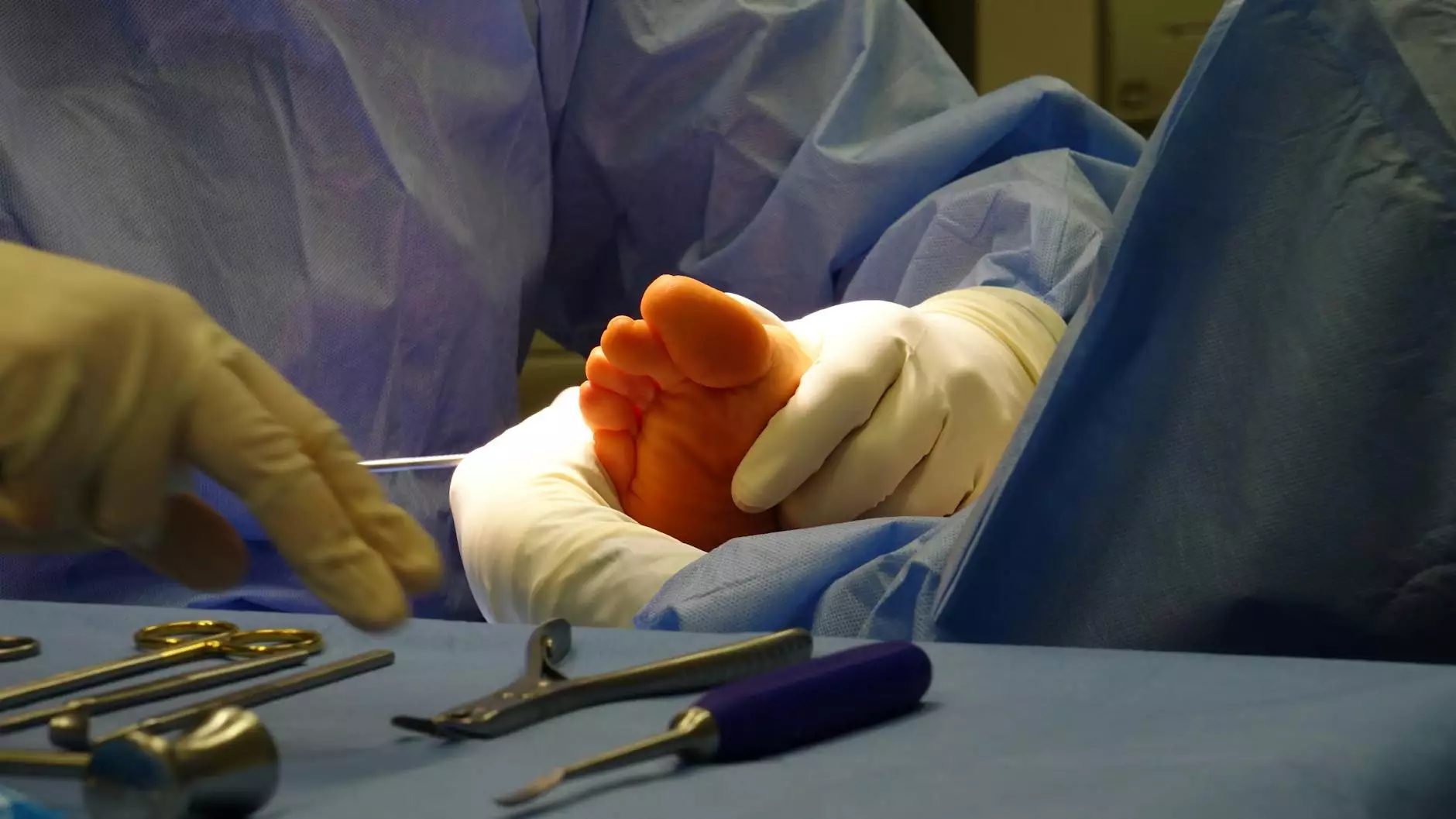Understanding the Role of **Pulmonary Surgeons** in Respiratory Health

In the complex world of healthcare, pulmonary surgeons play a crucial role in diagnosing and treating conditions affecting the lungs and respiratory system. This article will delve into the multifaceted responsibilities of these skilled professionals, highlighting their expertise, common procedures, and the importance of their work within the healthcare ecosystem.
What is a Pulmonary Surgeon?
A pulmonary surgeon is a specialized medical doctor who focuses on surgical interventions for various lung and respiratory diseases. These specialists are often board-certified in thoracic surgery, which encompasses not only lung surgery but also procedures related to the chest cavity, mediastinum, and esophagus.
Key Responsibilities of Pulmonary Surgeons
The responsibilities of pulmonary surgeons are diverse and require extensive training and expertise. Here are some of their primary duties:
- Diagnosis: Assessing and diagnosing conditions like lung cancer, emphysema, and chronic obstructive pulmonary disease (COPD).
- Surgical Procedures: Performing surgeries such as lobectomies, pneumonectomies, and thoracotomies.
- Collaboration: Working closely with oncologists, pulmonologists, and other healthcare professionals to create comprehensive treatment plans.
- Patient Care: Providing pre-operative and post-operative care, ensuring patients understand their conditions and treatment options.
- Research and Education: Engaging in clinical research to improve surgical techniques and patient outcomes, as well as educating medical students and residents.
Common Conditions Treated by Pulmonary Surgeons
Pulmonary surgeons deal with a variety of conditions that can severely impact patients' lives. Some of the most common conditions they treat include:
- Lung Cancer: One of the most serious conditions, requiring precise surgical intervention.
- Chronic Obstructive Pulmonary Disease (COPD): Often involves lung volume reduction surgery.
- Pneumonia: Severe cases may need surgical drainage of infected fluid.
- Interstitial Lung Disease: Can require lung transplantation or lung volume reduction surgeries.
- Thoracic Aortic Aneurysms: Repairing aneurysms in the chest area.
Essential Skills of a Pulmonary Surgeon
Success as a pulmonary surgeon requires a specialized skill set that combines technical expertise with critical thinking and patient management abilities. Key skills include:
- Technical Proficiency: Mastery of surgical techniques related to thoracic procedures.
- Attention to Detail: Precise evaluations and meticulous approaches during surgery are crucial.
- Patient Communication: Effectively communicating diagnoses, procedures, and postoperative care to patients and their families.
- Problem Solving: Quickly addressing complications that may arise during or after surgery.
- Team Collaboration: Working well within interdisciplinary healthcare teams to provide holistic patient care.
Cuts to Types of Surgeries Performed by Pulmonary Surgeons
Pulmonary surgeons are skilled in a range of surgical procedures that address various lung conditions. Below are some key surgeries performed:
1. Lobectomy
A lobectomy involves the removal of an entire lobe of the lung, commonly performed to treat lung cancer or severe infections. This procedure is critical for ensuring that the disease does not spread further.
2. Pneumonectomy
This surgery entails the removal of an entire lung. It is typically indicated in cases of advanced lung cancer or severe lung disease when the affected lung is not viable for functioning.
3. Segmentectomy
A segmentectomy is a more conservative approach where only a segment of the lung is removed. This is often used in early-stage lung cancers to preserve as much healthy lung tissue as possible.
4. Thoracotomy
Thoracotomy is an incision into the chest wall to access the lungs and thoracic cavity. This approach is used in cases where the surgeon requires direct access to the organs within the chest.
5. Lung Transplantation
In severe cases of pulmonary disease, lung transplantation may be the best option. This complex procedure requires a multidisciplinary team, including pulmonary surgeons, to ensure successful outcomes.
The Importance of Early Intervention
Early diagnosis and intervention by pulmonary surgeons can significantly improve patient outcomes. Conditions such as lung cancer are often asymptomatic in the early stages, which can delay treatment. Regular check-ups and being cognizant of respiratory symptoms can lead to timely referrals to a pulmonary surgeon.
Advancements in Pulmonary Surgery
Technological advancements and research in surgical techniques are continually evolving, enhancing the capabilities of pulmonary surgeons. Innovations such as minimally invasive surgery, Robotic-assisted surgeries, and enhanced imaging techniques have revolutionized the field.
Minimally Invasive Surgery
Minimally invasive approaches, such as video-assisted thoracoscopic surgery (VATS), allow surgeons to operate through smaller incisions, resulting in less postoperative pain, quicker recovery times, and reduced hospital stays.
Robotic-Assisted Surgery
This advanced technology offers enhanced precision and control during surgical procedures. Pulmonary surgeons using robotics can achieve optimal outcomes with minimal disruption to surrounding tissues.
Patient Resources and Support
At Neumark Surgery, we understand that undergoing surgery can be overwhelming for patients and their families. We provide comprehensive resources to support our patients throughout their journey:
- Preoperative Education: We offer detailed information about procedures and expected outcomes.
- Support Groups: Connecting patients with others who have undergone similar experiences.
- Follow-up Care: Continued support and monitoring post-surgery to ensure optimal recovery.
- Access to Specialists: Collaboration with other specialists to manage overall health.
Choosing the Right Pulmonary Surgeon
Choosing the appropriate pulmonary surgeon is crucial for your health. Here are some tips to consider:
- Credentials: Verify their board certifications and specialized training in thoracic surgery.
- Experience: Look for surgeons with extensive experience in the specific procedures needed.
- Patient Reviews: Assess feedback from patients regarding their experiences and outcomes.
- Communication Style: Choose a surgeon who communicates clearly and makes you feel comfortable.
Conclusion
Pulmonary surgeons are essential to the healthcare system, dedicated to the diagnosis and treatment of respiratory diseases. With their extensive training, advanced surgical techniques, and commitment to patient care, they offer hope and healing to patients facing some of the most challenging health issues. If you or a loved one is experiencing respiratory problems, consider consulting with a pulmonary surgeon at Neumark Surgery. Together, we can navigate the path to better lung health.
For more information about our services and to schedule a consultation, please visit our website at neumarksurgery.com.









